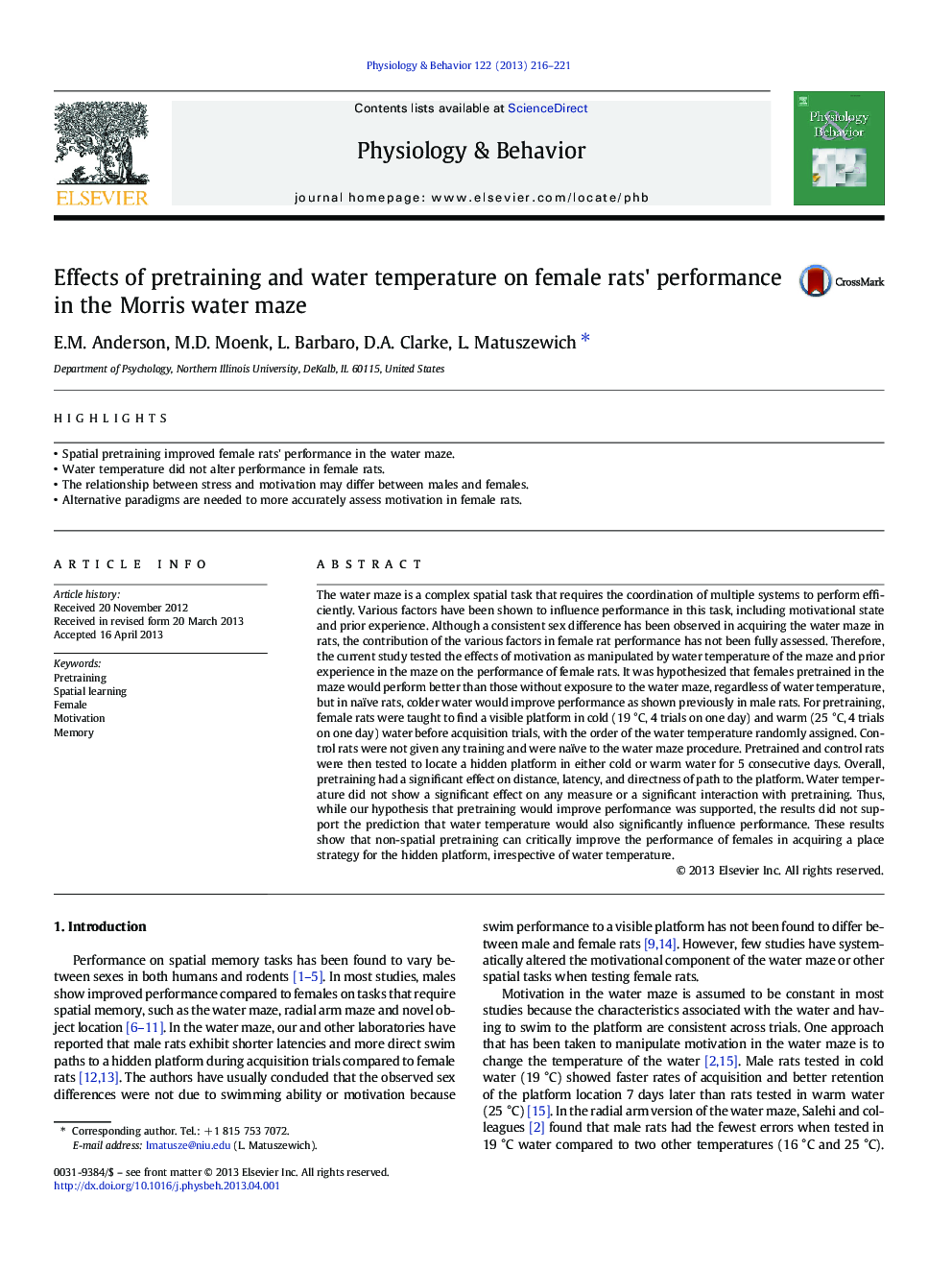| Article ID | Journal | Published Year | Pages | File Type |
|---|---|---|---|---|
| 5924395 | Physiology & Behavior | 2013 | 6 Pages |
â¢Spatial pretraining improved female rats' performance in the water maze.â¢Water temperature did not alter performance in female rats.â¢The relationship between stress and motivation may differ between males and females.â¢Alternative paradigms are needed to more accurately assess motivation in female rats.
The water maze is a complex spatial task that requires the coordination of multiple systems to perform efficiently. Various factors have been shown to influence performance in this task, including motivational state and prior experience. Although a consistent sex difference has been observed in acquiring the water maze in rats, the contribution of the various factors in female rat performance has not been fully assessed. Therefore, the current study tested the effects of motivation as manipulated by water temperature of the maze and prior experience in the maze on the performance of female rats. It was hypothesized that females pretrained in the maze would perform better than those without exposure to the water maze, regardless of water temperature, but in naïve rats, colder water would improve performance as shown previously in male rats. For pretraining, female rats were taught to find a visible platform in cold (19 °C, 4 trials on one day) and warm (25 °C, 4 trials on one day) water before acquisition trials, with the order of the water temperature randomly assigned. Control rats were not given any training and were naïve to the water maze procedure. Pretrained and control rats were then tested to locate a hidden platform in either cold or warm water for 5 consecutive days. Overall, pretraining had a significant effect on distance, latency, and directness of path to the platform. Water temperature did not show a significant effect on any measure or a significant interaction with pretraining. Thus, while our hypothesis that pretraining would improve performance was supported, the results did not support the prediction that water temperature would also significantly influence performance. These results show that non-spatial pretraining can critically improve the performance of females in acquiring a place strategy for the hidden platform, irrespective of water temperature.
